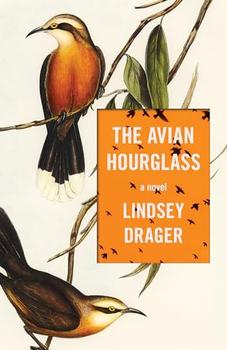Book Club Discussion Questions
Please be aware that this discussion guide will contain spoilers!
- Edward Curtis used a painstaking process to create his photographs, bringing heavy glassnegatives to even the roughest terrain and hand coloring many of his prints. What do histechniques say about his approach to humanity and to art? What would he think of our digitalcameras and desire to instantly share snapshots with the world?
- How did Short Nights of the Shadow Catcher change your understanding of Native American history? Did you have a particularly compelling moment, as J. P. Morgan did upon seeing
Mosa— Mohave, in which you saw America's past in a different way?
- Curtis made a fortune from his studio, but his commitment to the North American Indian project made him destitute. What intangible rewards was he gaining from the project? Is there a cause that you would be willing to support full-time without a salary?
- Photographs were only one aspect of Curtis's anthropology; it was just as important to him to make a written record of tribal rituals and language with impeccable accuracy. Other than his technical skills, what traits made Curtis the ideal person to create such a visionary record of America's first peoples? What advantages did he have over his more educated colleagues?
- How did you react to the way Seattle's white residents treated Angeline, by turns vilifying andrevering her? How did political leaders like Teddy Roosevelt manage to embrace progressive causes, such as land conservation and breaking up corporate monopolies, while remaining lukewarm about the plight of Native Americans? Where did your ancestors stand on the issue?
- The book captures the widely varied landscapes Curtis photographed on his expeditions, from the mesas of the Southwest to the tundra of Alaska. How were the Indians he encountered an extension of their homelands? What did they teach him about the spirit of the natural world?
- Discuss the disputed events at Little Bighorn and the account provided by Curtis's guides. How did Curtis see his role as a historian? What truths was he able to document with his cameras?
- What inspired men like John Muir and Edmond Meany to venture to mountaintops? What was the importance of their work, especially as cities and railroads began to encroach on the wilderness of the Northwest? How did their motivation compare to their Indian guides'?
- How did you feel about Clara Curtis throughout the book? Would you have been able to remain supportive of Edward's project? Why do you suppose the couple's children were more sympathetic toward Edward?
- Discuss the lives of Alexander Upshaw and Belle da Costa Greene, two central figures in Curtis's life who assimilated to white America. What was expected of them in order to be
successful in the "white world"? How was their experience different from Curtis's as he tried to gain acceptance among the tribes he photographed?
- In the closing passage of the chapter "Twilight," Egan writes, "...not a single person in those books was a stranger to him. "What was at the root of Curtis's connection to the Indians? What drove him to feel such empathy?
- Discuss the financial power brokers of the time period. What are the implications of J. P. Morgan's ability to single-handedly prevent an economic panic and the fact that there wasn't yet
an income tax in America? How was Curtis's work affected by his heavy reliance on private investors? Could his work have been different if he undertook it today, when he might qualify for grants from the government or nonprofits? Would it still have made him destitute, or is celebrity a guarantee of wealth today?
- How does Short Nights of the Shadow Catcher enrich the history you discovered in Timothy Egan's previous books? What makes his perspective on the human experience unique?
Unless otherwise stated, this discussion guide is reprinted with the permission of Mariner Books.
Any page references refer to a USA edition of the book, usually the trade paperback version, and may vary in other editions.




